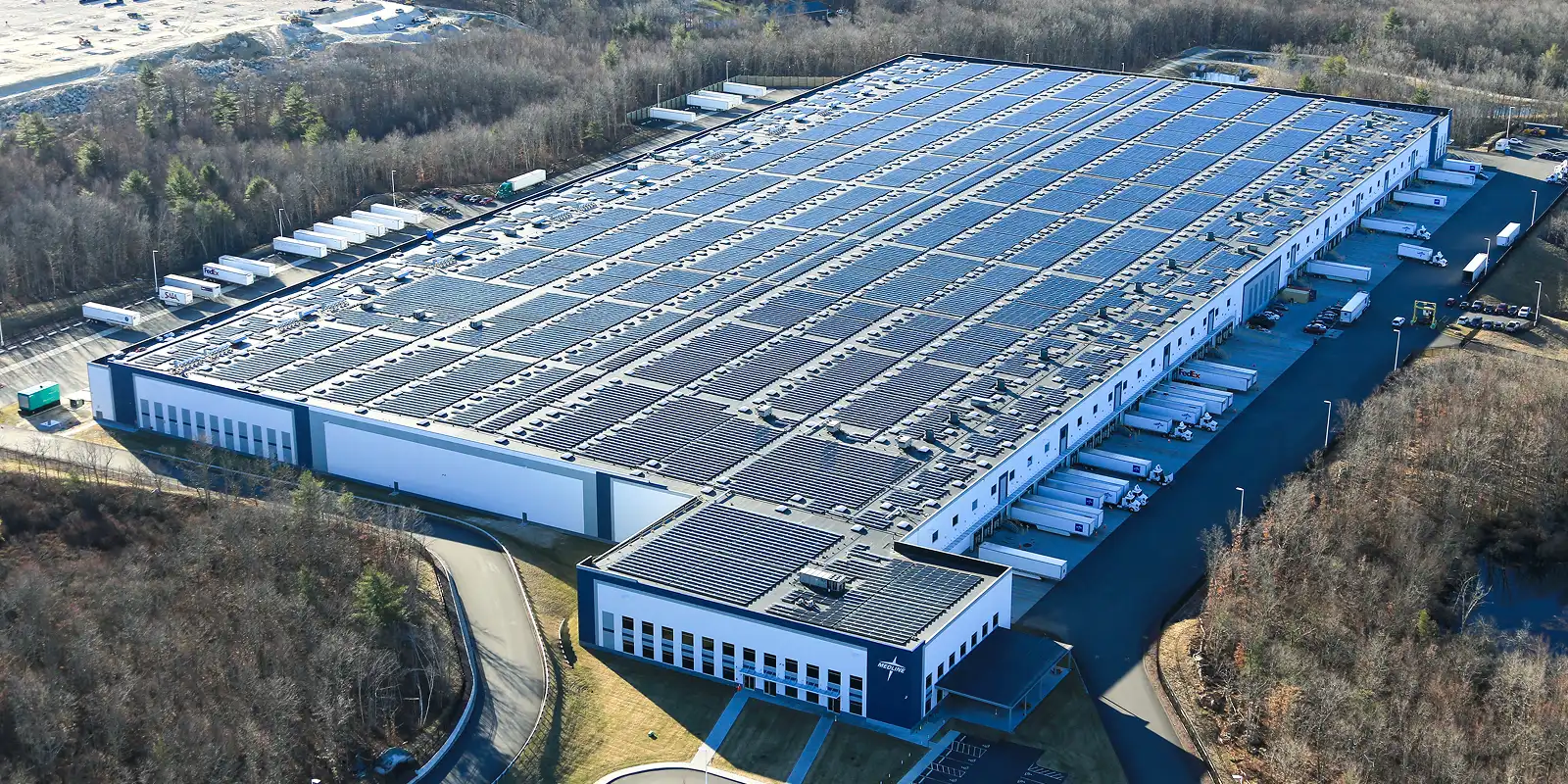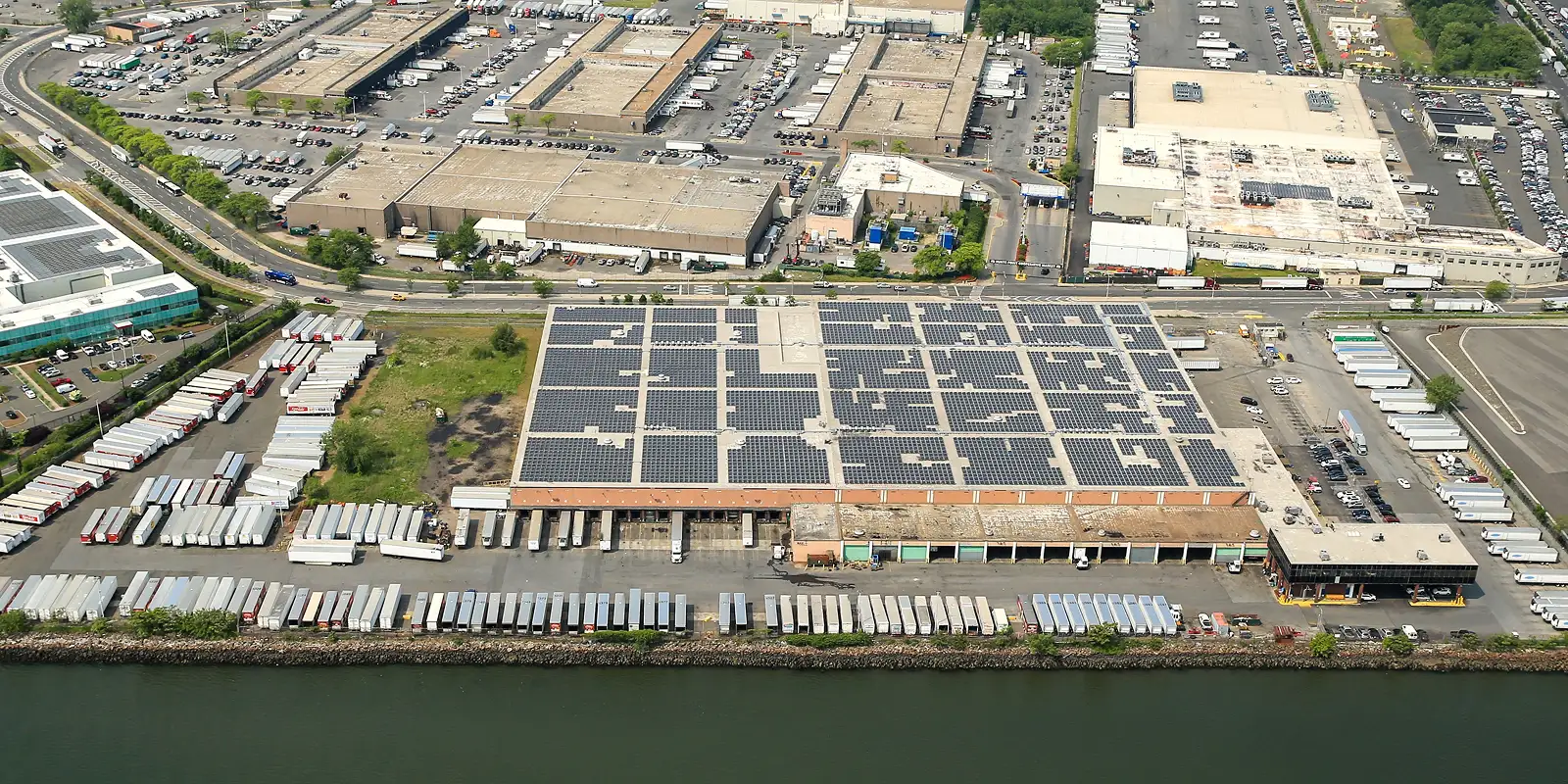The Advantages of Solar Self-Consumption With Energy Storage

Running a successful commercial enterprise requires that every team around the company find better and more efficient ways of meeting their responsibilities. Building operations people need to seek out more affordable and reliable sources of energy, sustainability managers must deliver on emissions targets, and C-suite leaders have to realize return on investments. Generating, consuming, and storing solar energy on your commercial property is a sure way to achieve these goals. Let’s take a closer look at the practice and break down how it benefits businesses.
What Is Solar Self-Consumption?
Solar self-consumption is the practice of using the electricity generated by your solar panels to power your building operations. The amount of solar self-consumption you can achieve depends on several factors, including the size of your solar array, your onsite electricity usage, and the amount of sunlight your panels receive. Solar self-consumption is measured using a "self-consumption ratio,” which is the amount of solar energy generated in relation to how much of it is used to power your loads. Taking steps to optimize your self-consumption ratio allows you to maximize economic and environmental returns.
Benefits of Solar Self-Consumption
Solar self-consumption reduces reliance on utility electricity, which offers a range of benefits for businesses. For one, by using the electricity generated by their solar panels to power their operations, businesses can significantly reduce their electricity bills. This can lead to substantial cost savings over time, especially for commercial enterprises with high energy consumption.
In addition to cost savings, reduced reliance on utilities also contributes to reducing your carbon footprint. By generating clean, renewable energy from the sun, businesses can minimize their use of fossil fuels and lower their greenhouse gas emissions. This not only benefits the environment but also aligns with the growing demand for sustainable practices among consumers and investors.
Moreover, solar self-consumption can add value to a commercial property. Studies have shown that properties with solar panels sell for a higher price compared to those without. This is because solar panels are seen as a desirable feature that enhances the property's sustainability and overall appeal.
Battery Energy Storage and Its Benefits
While solar panels produce energy, a battery energy storage system (BESS) plays a critical role in ensuring this energy is utilized to its peak potential. One way is by storing any surplus solar energy that’s left over after a building’s power needs have been fulfilled. This energy can be used at night once the sun goes down, or during periods of reduced solar production.
In addition to storing solar energy, a battery energy storage system can also intake electricity directly from utility lines. This factors into another benefit of the technology: enabling energy cost-saving strategies. Here are some examples.
- Energy arbitrage: Drawing energy from the grid when electricity rates are low and using it to power your operations when rates are high
- Peak shaving: Avoiding peak demand charges (charges levied by the utility for your highest period of usage) by flattening your maximum electricity consumption
- Solar shifting: Moving your use of free solar energy to later in the day, when grid electricity tends to be most expensive
- Demand response: Participation in utility programs that offer financial incentives for reducing electricity consumption during peak demand periods
Battery energy storage can also provide added energy resilience. When energy storage is incorporated into an islanded microgrid – in that, a building has the ability to isolate itself from the utility grid – it can provide backup power during power outages, keeping business-critical systems running for multiple days while reducing fuel costs and environmental impact.
How Solar Self-Consumption and Energy Storage Work Together
Combining solar arrays with battery storage maximizes your ability to use solar energy. Without an energy storage system, your excess solar energy would either go to waste or you could export it to the grid in exchange for credits on your utility bill if your state allows net metering. However, with some states like California making drastic changes to their net metering policies that greatly reduce the value of exported electricity, leveraging energy storage to increase self-consumption is far more financially advantageous.
This synergy not only supports sustainability but also bolsters your bottom line by improving energy efficiency and reducing costs. The combination of solar panels and batteries ensures that your investment in solar goes further, providing a reliable power supply that can support your operational needs for 25 years or more.
PowerFlex: Your Partner for Solar and Energy Storage
At PowerFlex, we specialize in solar and battery energy storage solutions that are tailored to the unique needs of your business. We provide expert guidance and support throughout your clean energy journey, from initial system design and permitting to professional installation and asset management.
And with our adaptive energy management platform, PowerFlex X™, we can optimize your entire onsite energy portfolio including solar arrays, batteries, and electric vehicle charging stations. This holistic approach ensures you maximize both financial returns and sustainability benefits, all while streamlining your transition to a smarter energy future.
Contact PowerFlex today to discuss how we can help you harness the full potential of solar self-consumption and battery energy storage.




